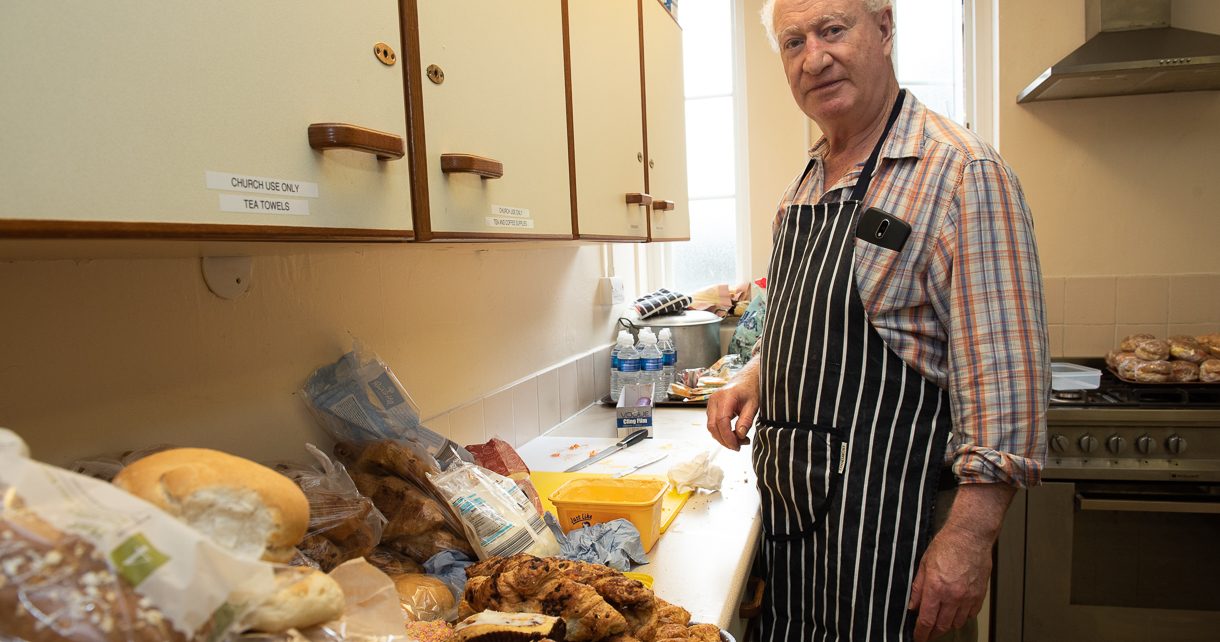“My food bill doubled”
Stella Ridgway works in finance – an industry where the gap between the average earner and the highest paid top boss is mammoth, often accounting for a disparity that’s hundreds of times wide. In fact, the Economic Policy Institute argues that it is skyrocketing executive pay in the financial sector that’s driving income inequality in this country.
So what’s it like to work in the trenches of a sector where pay at the bottom is so low?
“I make only ÂŁ17,500 per year in admin,” Ridgway explains. “I’ve noticed a huge increase in the cost of living in the past few years, and my wages just haven’t been able to keep up. The bank I work for only gives pay rises based on â€performance.’ There was one year I didn’t get a pay rise and I haven’t recovered since.”
Ridgway lives on a narrow boat with her husband, whose benefits were stopped two years ago. He had initially been on incapacity benefit, but under benefit reforms, he was moved to ESA and found “fit to work”. Now both she and her husband, who is not able to work, must make do with the meagre pay Ridgway earns.
“I actually earn just £500 too much for us to claim working tax credits or any other benefits. It’s really hard without the additional support.”
While bank bosses may only sense the cost of living rise incidentally, as an afterthought, Ridgway and her husband have felt it palpably, in the year on year that food becomes ever more unaffordable.
“My food bill has doubled in the past five years,” says Ridgway. “Something I’ve noticed is that you get a lot less now for the same price. For example, a few years ago, you’d get six apples for 50p, and now you only get four.”
Noticing the tiniest rises in food prices is testament to how careful Ridgway must be with the little she makes. But what most people don’t understand about living on low pay, says Ridgway, is that it’s not the actual living budget they can’t manage; it’s the extra expenses life throws at you.
“When you earn so little, you budget like crazy,” she explains. “For example, my husband and I don’t eat meat; we keep track of every single expenditure we make. But then the other day, our dog decided to have a wander and he ended up at the pound.”
To get their dog out, the pound charged a ÂŁ90 fee.
“That was more than our entire budget for the week, gone, just like that.”
Commenting on the outrageous pay that top execs gain at the expense of their workers, Ridgway has no inherent animosity towards high-earners.
“It’s really not a problem for me if some people earn more than others,” she says, “but only if they’re worth it.”
“Just the other day, our bank was fined billions for a mistake those at the top made. Now, they’re cutting everyone’s bonuses. Even if the bosses have some of their bonus taken away, it doesn’t make a difference to them. For me, if my bonus is cut because of someone else’s fault, that’s my heating bill for the entire year.”
Ultimately, Ridgway believes workers deserve a pay rise because they often work just as hard as those who earn hundreds of times more.
“They just don’t have a clue what it’s like to do what we do,” she said. “For them, we’re just a number.”
 Like
Like Follow
Follow


